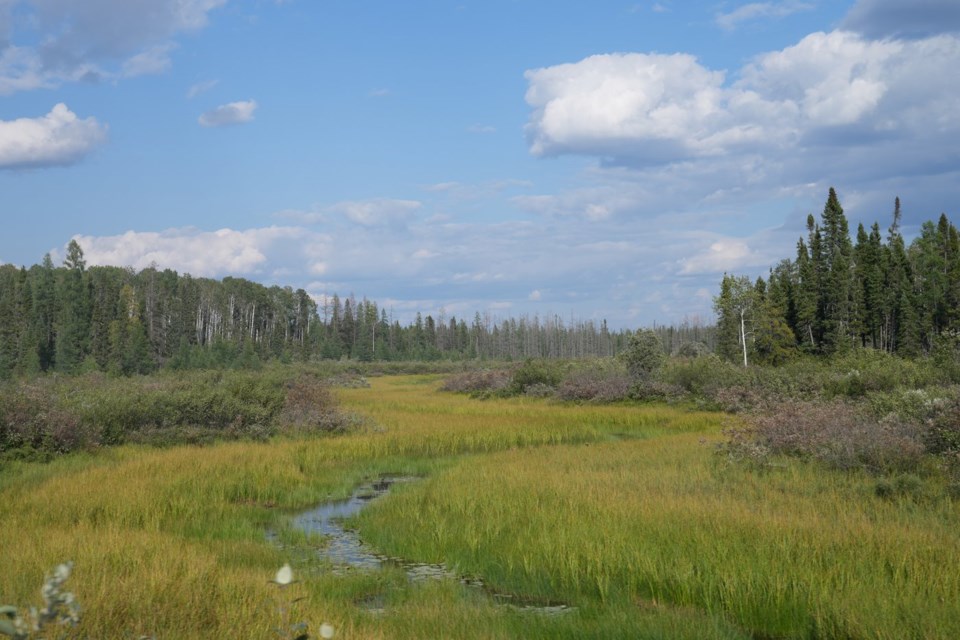TORONTO — Premier Doug Ford's government is set to capitulate to some First Nation demands on a controversial mining bill, though it will not kill the proposed law outright despite the growing backlash.
Indigenous Affairs Minister Greg Rickford and Mining Minister Stephen Lecce said the province will amend Bill 5 to explicitly include duty to consult provisions throughout the legislation.
The bill, which seeks to speed up mining projects, was set to go through amendments Wednesday at committee as it moves toward becoming law.
The province has framed the omnibus bill, which critics say also guts protections for endangered and threatened species, as necessary to combat the instability created by U.S. President Donald Trump and his tariffs.
The new legislation would create so-called "special economic zones" where it can suspend provincial and municipal laws, but will also add in "special Indigenous economic zones" at the request of First Nations for projects they want fast-tracked.
The province is set to designate the Ring of Fire in northern Ontario as the first such zone, a move that has set off a firestorm of anger among First Nations, many of which have pledged to take the fight to the land and the courts.
But Rickford and Lecce said the province will not designate the Ring of Fire a special economic zone until it meaningfully consults with all First Nations in the area.
"We are going to enunciate explicitly in each one that the duty to consult is there and it will be upheld to the highest standards," Rickford said.
"The aim is to make First Nations partners."
Once the bill is passed — likely next week — Ford, Rickford and Lecce will meet immediately with First Nation leadership, they said.
Ford struck a softer tone Wednesday than he has previously.
"We're always going to respect the duty to consult and their treaty rights," he told CityNews. "We're going to work with them and collaborate with them."
He said the legislation was put forward because the country is in an "economic war" with Trump.
"We want prosperity for the First Nations communities right across our province," he said.
First Nation chiefs have shown up en masse at Queen's Park over the past week from the far reaches of northern Ontario to tell the politicians that the province is going about this in the wrong way. They say the government has already failed in its duty to consult.
On Wednesday, New Democrat Sol Mamakwa put forward a third motion to add committee hearings in northern Ontario in order to better hear from First Nations peoples. The government rejected that pitch.
"You cannot fulfil your duty to consult at the 11th hour," he told committee.
"There was no free, prior or informed consent."
Mamakwa met with Rickford and Lecce Wednesday morning and said he told the pair a "showdown" is coming.
"It's a slap in the face when you try to do last-minute changes to appease the First Nations," said Mamakwa, the lone First Nation member at Queen's Park. He represents the riding of Kiiwetinoong in northwestern Ontario, where the Ring of Fire is located.
He said the government should have had language around the duty to consult in the bill from the start, after an extensive consultation process. He said he has heard nothing about Indigenous-led economic zones and has many more questions about it.
"That's a dialogue that we need to have," he said.
Ford has long talked about mining the Ring of Fire, which is said to be replete with critical minerals, and is located some 450 kilometres north of Thunder Bay, Ont.
The Chiefs of Ontario, which represent all 133 First Nations in the province, said the bill should be killed outright so they can be consulted from the start.
Their leader, Ontario Regional Chief Abram Benedict, met with Ford last week at the premier's home, where he told him about the problems with the bill.
Benedict said First Nations are not against development or mining. In fact, they want to be part of major projects, but he said his member nations are furious about how the government has approached this.
That meeting touched off talks with numerous First Nation chiefs, in which the ministers said they planned to work together with them to create the regulations that will enforce the new law.
"We will not use the authorities like a special economic zone until we've meaningfully consulted," Lecce said.
The ministers said they've received a number of great suggestions from First Nations.
Rickford and Lecce said there are large infrastructure projects they want to complete to help some remote First Nations get off diesel gas that they use for electricity generation.
They are also proposing to help build roads to connect communities to the provincial highway system, since climate change is wreaking havoc with winter ice roads the communities rely on to haul in all sorts of goods.
Rickford pointed to the government's announcement last week that will triple the province's amount of loan guarantees through a provincial Indigenous financing program, to the tune of $3 billion, as proof of Ontario’s commitment to economic reconciliation with First Nations.
This report by The Canadian Press was first published May 28, 2025.
Liam Casey, The Canadian Press




